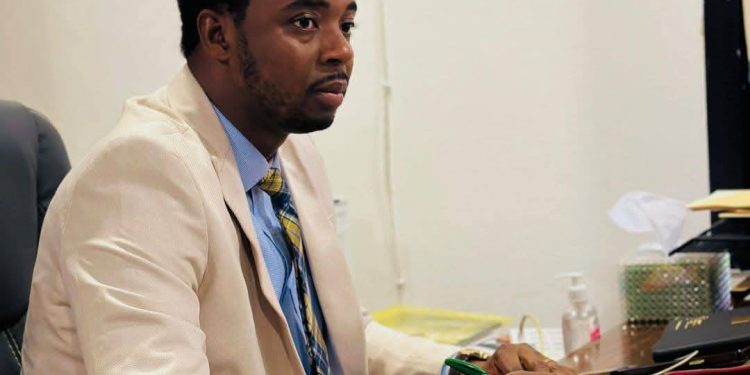By Hassan Osman Kargbo
In a move to deepen grassroots peacebuilding and economic empowerment among Sierra Leone’s youth, the Ministry of Youth Affairs, under the leadership of Minister Ibrahim Sannoh, held a high-level engagement with the United Nations Development Programme (UNDP) and the United Nations Capital Development Fund (UNCDF) to discuss the future direction of a flagship national initiative designed to transform young motorbike riders into agents of peace and cohesion.
The initiative, titled “Empowering Youth Bike Riders as Sustainable Agents for Peace in Sierra Leone,” targets the country’s vibrant but often vulnerable Bike Riders Union. This union represents thousands of young men and women who rely on commercial motorbike riding—popularly known as “okada”—as their primary source of livelihood.
The project’s main objective is to reposition these riders as active ambassadors for peacebuilding, conflict prevention, and community development, in addition to their economic contributions through transportation services.
During the meeting, held in Freetown, stakeholders deliberated on the next phase of the project and reviewed proposed adjustments aimed at maximizing its long-term impact. One of the significant proposals under consideration is the procurement and distribution of new motorbikes to union members across various districts. The move, if approved, is expected to boost the economic resilience of riders, foster a sense of ownership, and encourage greater responsibility toward maintaining public order and peace.
Minister Sannoh described the project as a cornerstone in the government’s broader strategy to harness youth potential for national development. “Our young bike riders are not just transporters. They are community influencers. By empowering them economically and socially, we are investing in peace from the grassroots up,” the Minister emphasized.
He noted that this initiative is in line with the government’s ongoing efforts to reduce youth unemployment, promote economic inclusion, and prevent the involvement of marginalized young people in civil unrest or political violence.
Representatives from UNDP and UNCDF, both critical partners in the project, reaffirmed their commitment to supporting the Ministry of Youth Affairs in ensuring the sustainability and expansion of the program. They highlighted the potential of the Bike Riders Union as a strategic platform for driving community-level stability and economic empowerment.
“We see this as more than just a transportation sector intervention,” remarked a UNDP representative. “These young riders play a visible and influential role in almost every town and village. When they carry the message of peace and responsibility, the entire community listens.”
The UNCDF emphasized the importance of financial inclusion in the project’s design, noting that access to affordable financing options, savings schemes, and business development services will be essential to sustaining the benefits of the initiative.
Motorbike riders represent a significant segment of Sierra Leone’s youth population, particularly in urban and peri-urban areas where formal employment opportunities remain scarce. Often perceived as both economic drivers and potential sources of unrest, bike riders are uniquely positioned to influence public attitudes and promote social cohesion—making their engagement in peacebuilding efforts both necessary and strategic.
According to the Ministry of Youth Affairs, the project also seeks to improve riders’ access to safety training, legal registration processes, and civic education. By equipping them with knowledge and resources, the initiative aims to formalize and professionalize the sector, reducing incidents of lawlessness and conflict between riders and law enforcement agencies.
The discussions concluded with an agreement to develop a detailed action plan for the next phase of implementation, which will include further consultations with the leadership of the Bike Riders Union, local government authorities, and development partners.
Minister Sannoh and his counterparts at UNDP and UNCDF expressed optimism that the initiative will serve as a model for inclusive, youth-driven peacebuilding not only in Sierra Leone but across the region.
As the project progresses, stakeholders are hopeful that empowered, organized, and peaceful youth bike riders will help lay the foundation for long-term stability, economic growth, and national unity.











